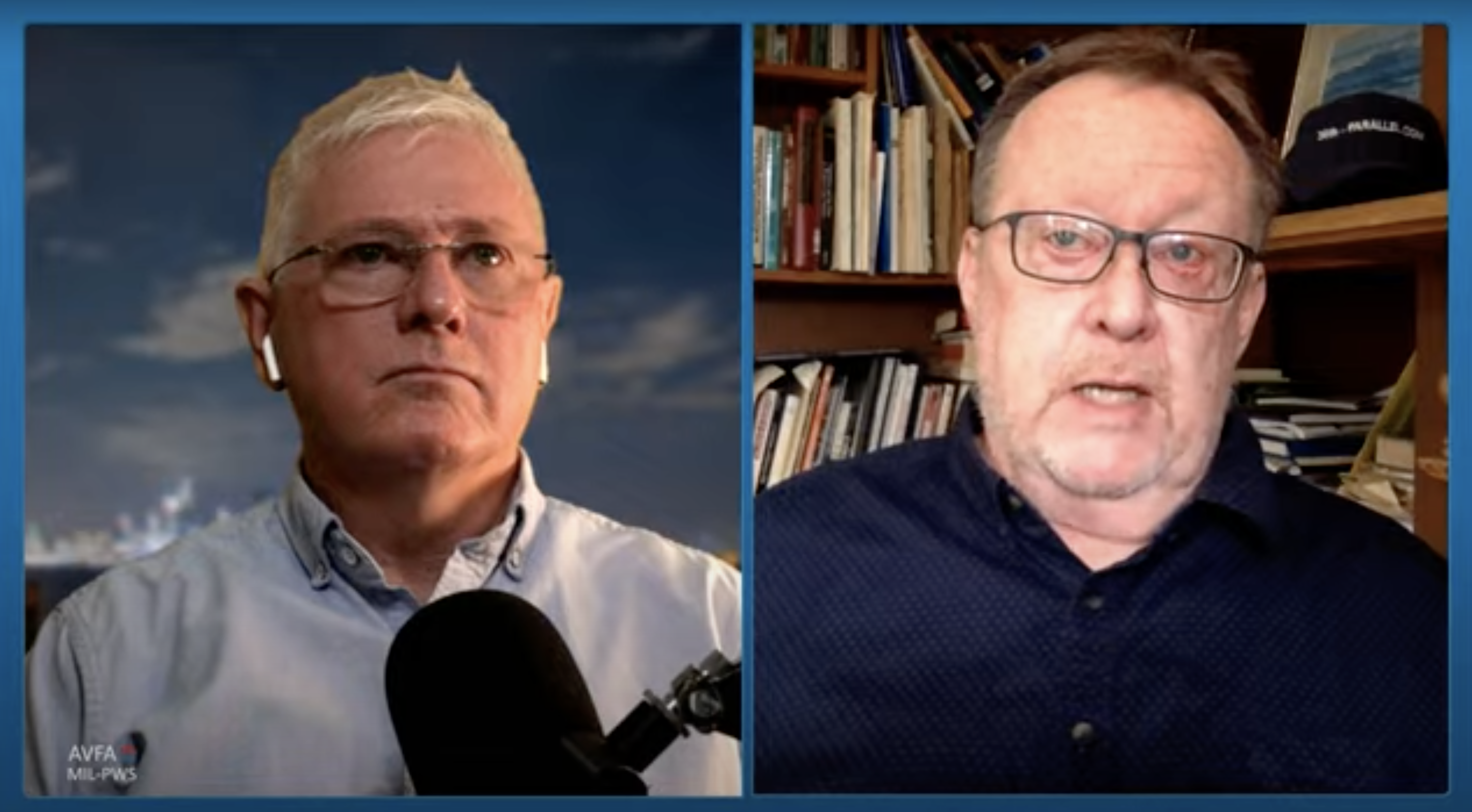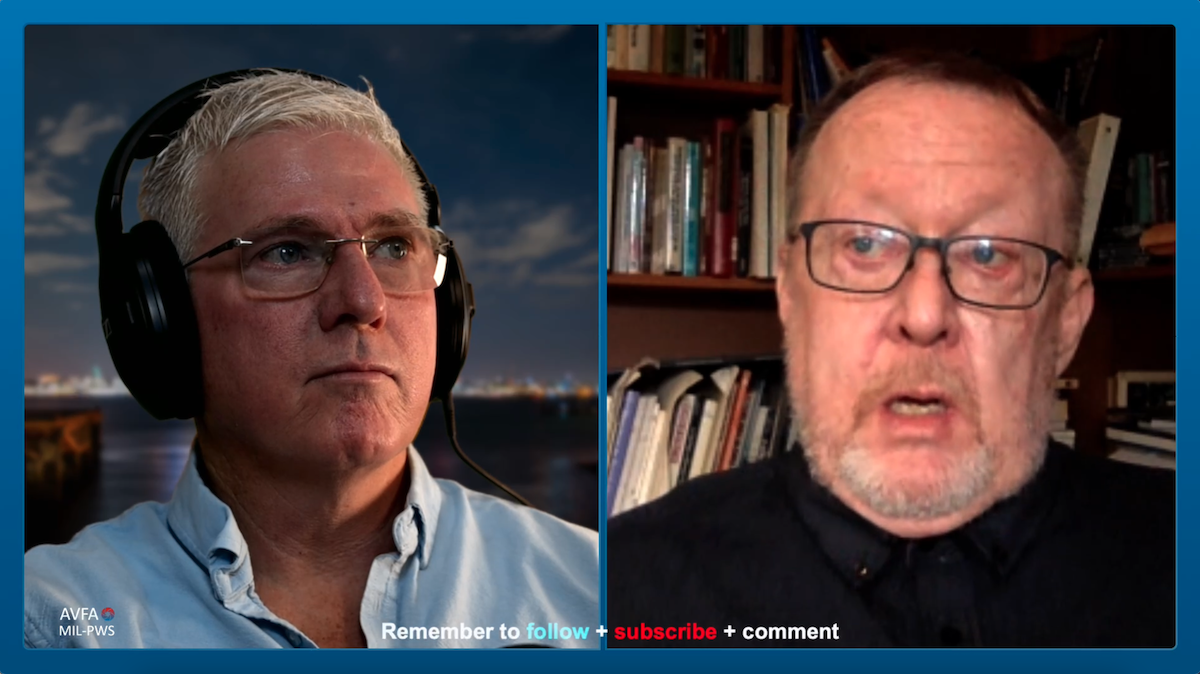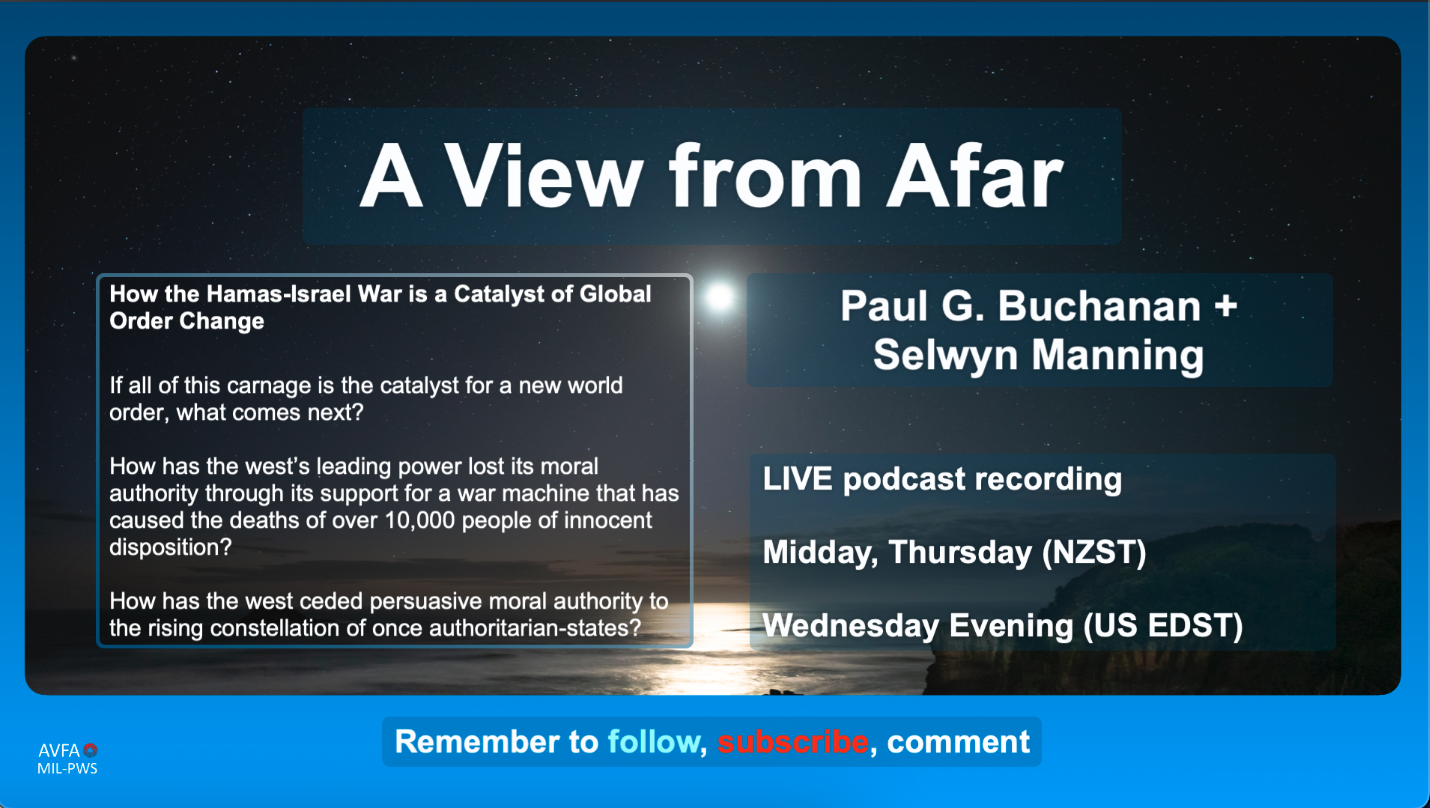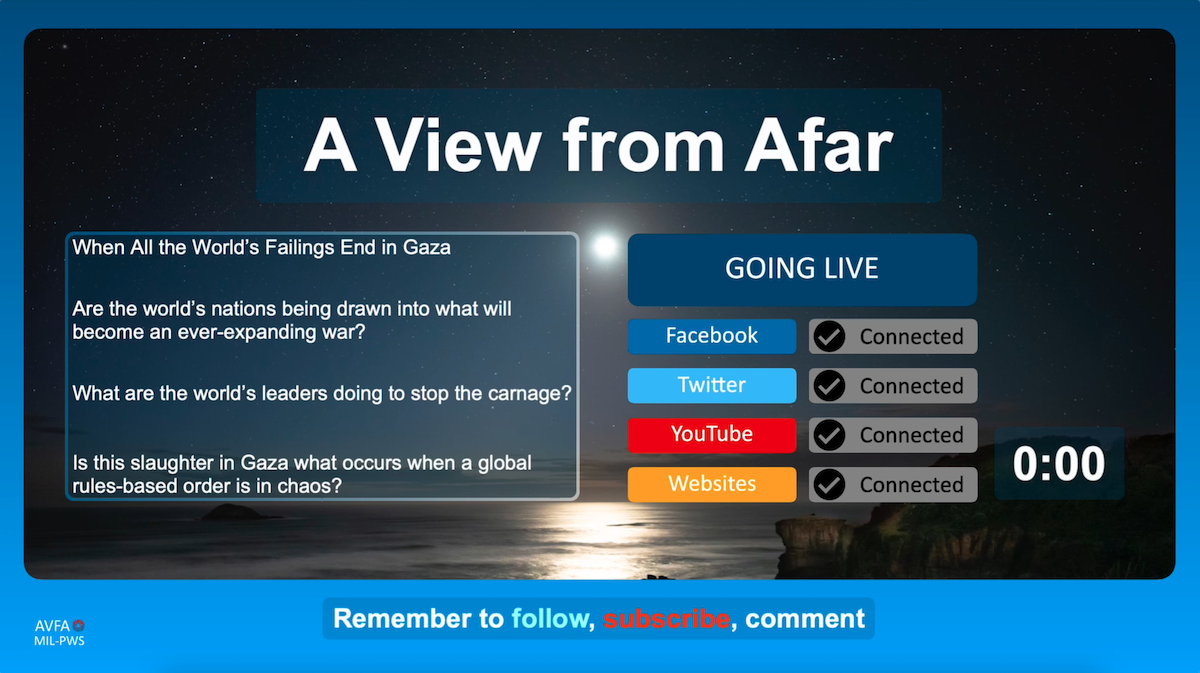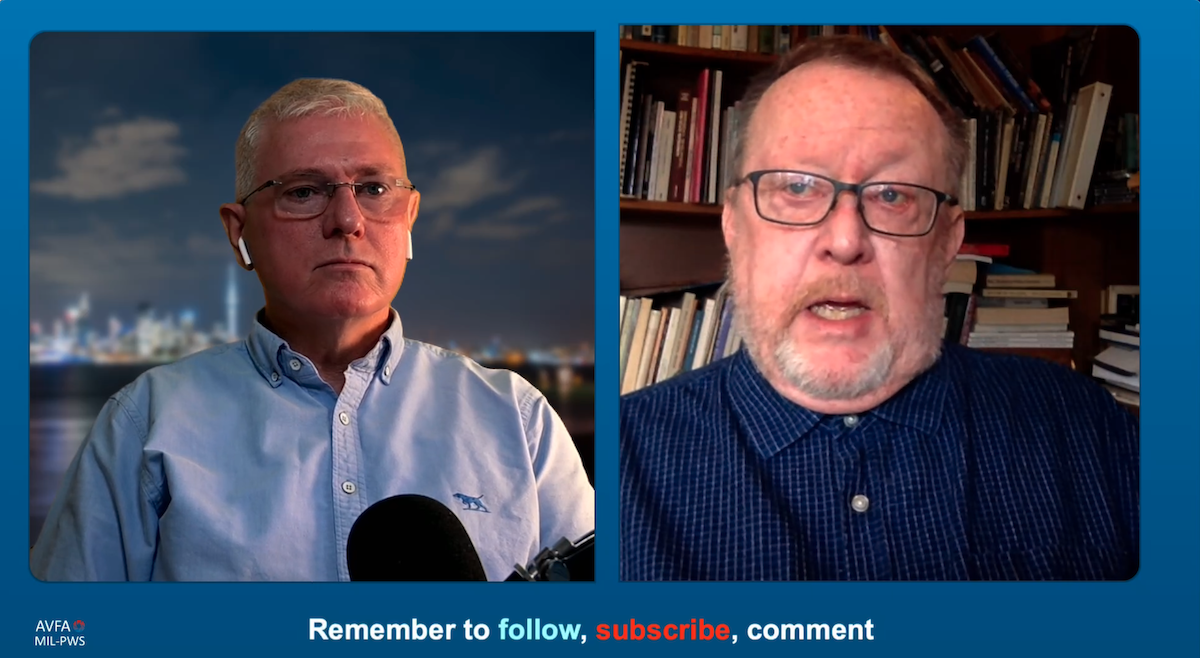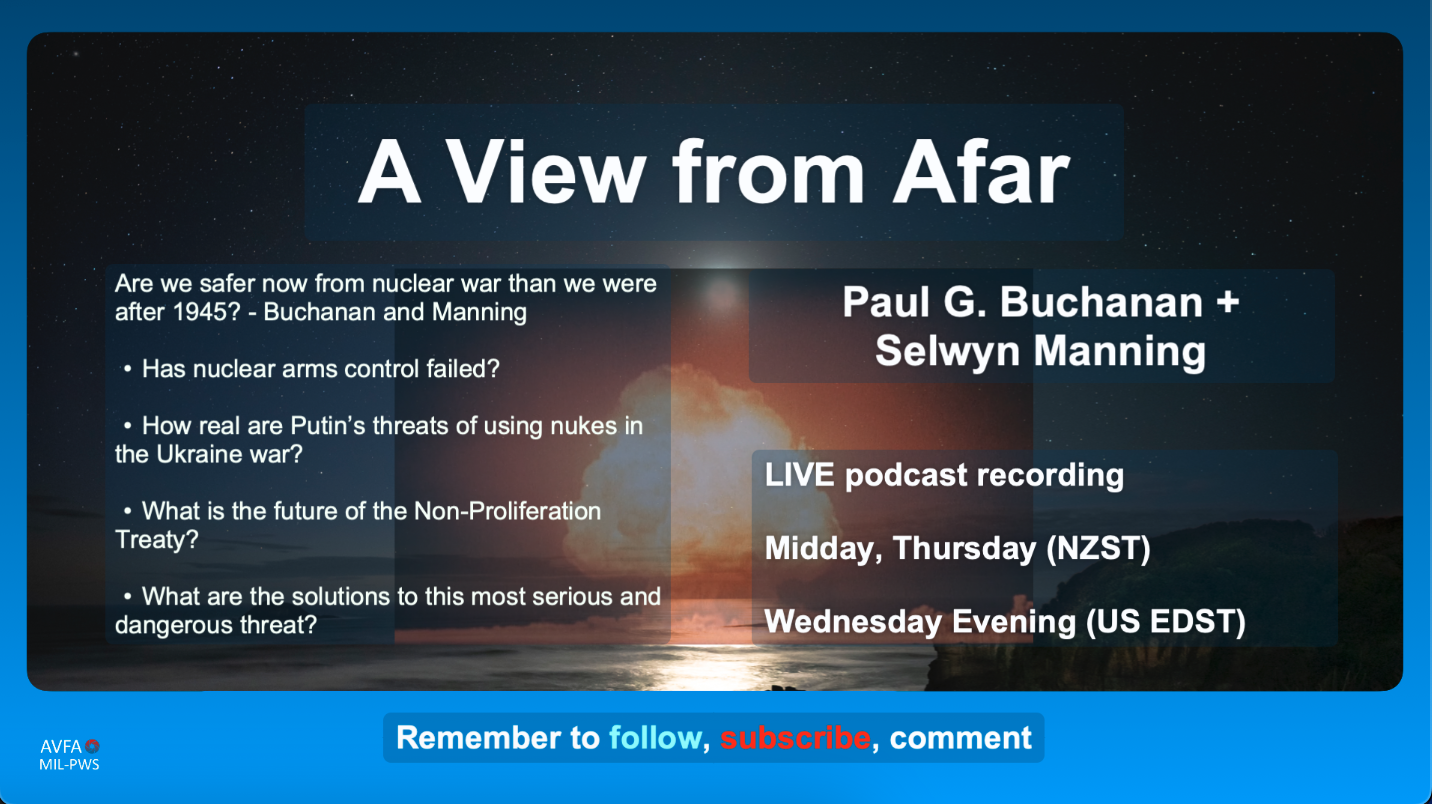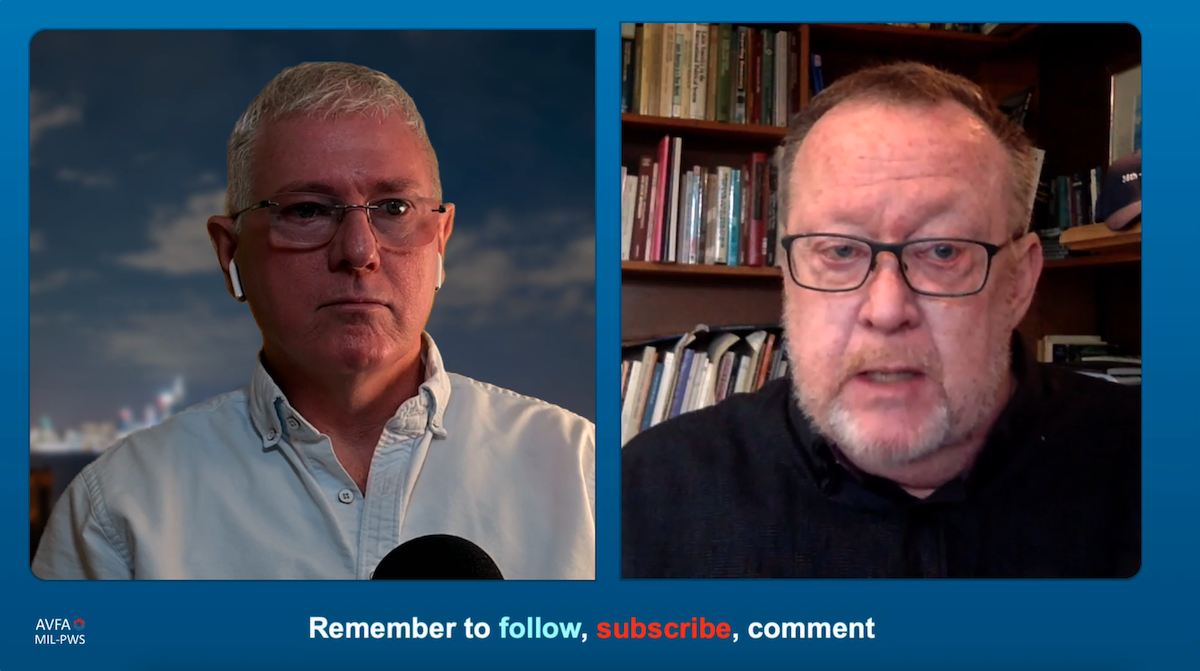PODCAST: A New Arms Race: Deterrence and De-Escalation Are They Still Valid Concepts?
Description
In this episode of A View from Afar political scientist and former Pentagon Analyst, Paul G. Buchanan and journalist Selwyn Manning discuss, debate, and assess whether deterrence is still a valid concept in international relations.
Paul and Selwyn assess whether deterrence has failed in Syria, Ukraine, the Middle East, and failed to stop an intensification of threat in the South China Sea.
And they consider the question:
Is nuclear deterrence dead in the water?
But, overnight, the New York Times released details of a secret new nuclear deterrence plan that has been advanced in secret by the Biden Administration. Biden’s Nuke Plan is designed to ensure the USA stays ahead of an arms race, and a supposed coordination of nuclear weapons technologies being developed by China, North Korea and Russia.
New questions arise.
Does a new-generation arms race, led by the United States, based on advanced nuclear weaponry, made more fearsome due to a rapid advance of artificial intelligence-assisted decision-making and target-selection, mixed with hybrid warfare, cause aggressive nations to rethink the consequences should they preemptively initiate conflict?
- And what about the majority of the world, what about small states, small powers, that seek stability and security via multilateralism or a constellation of like-minded nations – how does deterrence impact on their decision-making?
- Do alliances, led by global powers, that rely on deterring adversaries through development of superior weaponry and technology, offer small states more risks than benefits?
- Specifically, is it preferable for many small states to focus on de-escalation and cooperative security rather than bind themselves to collective security agreements that are focused on deterring adversaries?
- And, the big question: How do we as member states in a world where bipolarity and conflict is intensifying, ensure de-escalation occurs without reaching a tipping-point that we cannot return from?
- Is cooperative security, and mutually agreed to weapons and technological controls, the way toward restoring an uneasy peace in the world?
INTERACTION WHILE LIVE:
Paul and Selwyn encourage their live audience to interact while they are live with questions and comments.
To interact during the live recording of this podcast, go to Youtube.com/c/EveningReport/
Remember to subscribe to the channel.
For the on-demand audience, you can also keep the conversation going on this debate by clicking on one of the social media channels below:
- Youtube.com/c/EveningReport/
- Facebook.com/selwyn.manning
- Twitter.com/Selwyn_Manning
RECOGNITION: The MIL Network’s podcast A View from Afar was Nominated as a Top Defence Security Podcast by Threat.Technology – a London-based cyber security news publication. Threat.Technology placed A View from Afar at 9th in its 20 Best Defence Security Podcasts of 2021 category.
You can follow A View from Afar via our affiliate syndicators.


